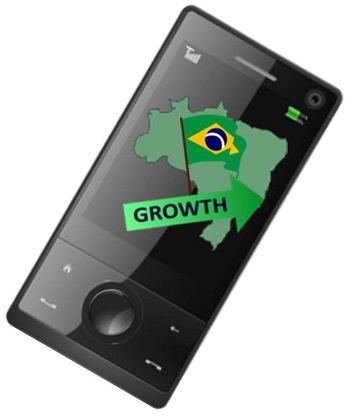Using smartphones for purchasing a range of different kinds of items has become very popular in Brazil.
A recent study conducted on the mobile commerce market in Brazil has shown that shopping over smartphones is becoming increasingly popular within the country, particularly among young consumers who are shopping for the first time.
The research indicated that throughout 2015, there was an increase of 47 percent in m-commerce shoppers.
This is a dramatic rise in the number of people who are turning to mobile commerce in order to buy the products and services they want. The firm behind the study, E-bit, determined that shopping over smartphones made up a considerable 14.3 percent of the country’s online trading in 2015. When compared to the same figure from the year before, when it was 9.7 percent, that represents a very meaningful rise in this trend.
The research also indicates that 22 percent of online shoppers in Brazil have used mobile commerce.
 That said, the same research has also underscored the fact that 88 percent of online shoppers still prefer to buy products and services over their desktop and laptop computers. While they might use their mobile devices for researching products and doing price comparisons, the final purchase still tends to be made over traditional computers the majority of the time. This indicates that consumers prefer to use multiple devices to complete the entire shopping journey from the point that they decide they want something and start to look into it, to the point that they actually pay for the items in their digital shopping carts.
That said, the same research has also underscored the fact that 88 percent of online shoppers still prefer to buy products and services over their desktop and laptop computers. While they might use their mobile devices for researching products and doing price comparisons, the final purchase still tends to be made over traditional computers the majority of the time. This indicates that consumers prefer to use multiple devices to complete the entire shopping journey from the point that they decide they want something and start to look into it, to the point that they actually pay for the items in their digital shopping carts.
In 2015, e-commerce in the Brazilian market generated $10.9 billion in sales, which was an increase over 2014 by 15.3 percent. This shows that there has been a significant trend leaning toward purchasing products and services on digital devices such as smartphones, tablets and computers.
That said, the news when it comes to online shopping and mobile commerce isn’t all positive. Recent research also published by E-bit but that was produced by a separate study has shown that they predict the lowest growth rates in online shopping in 15 years as a result of the current economic situation being experienced in the country. Brazil is in a recession at the moment and consumers have been cutting back on their spending as a result of this condition.

